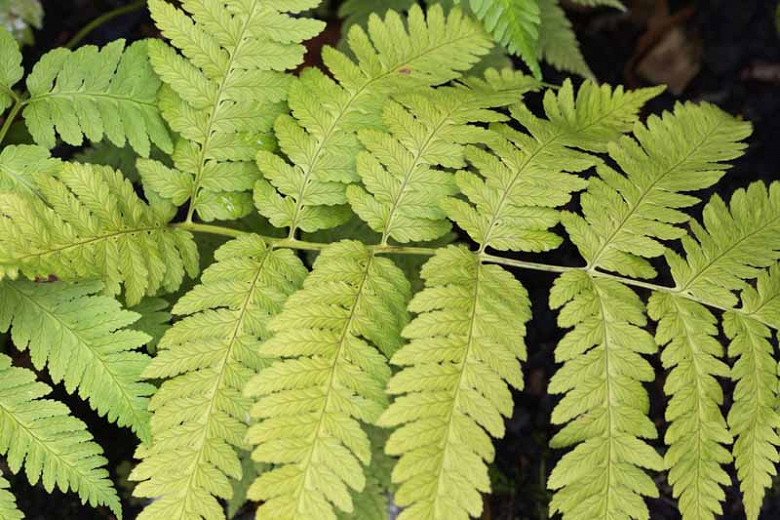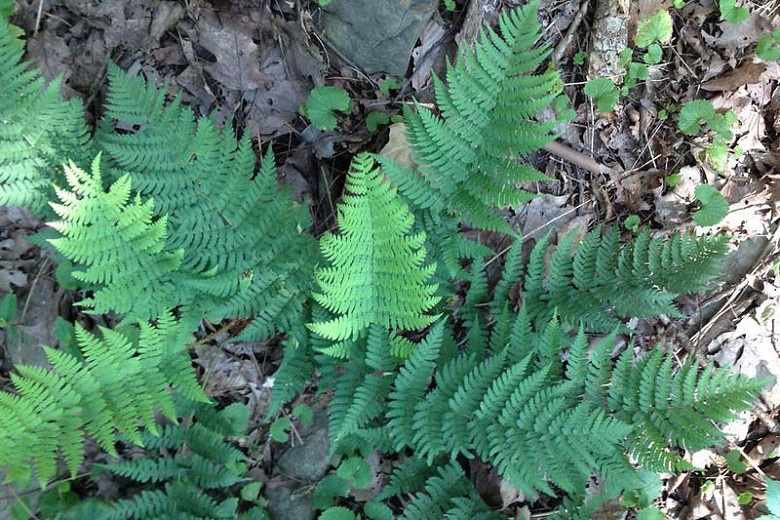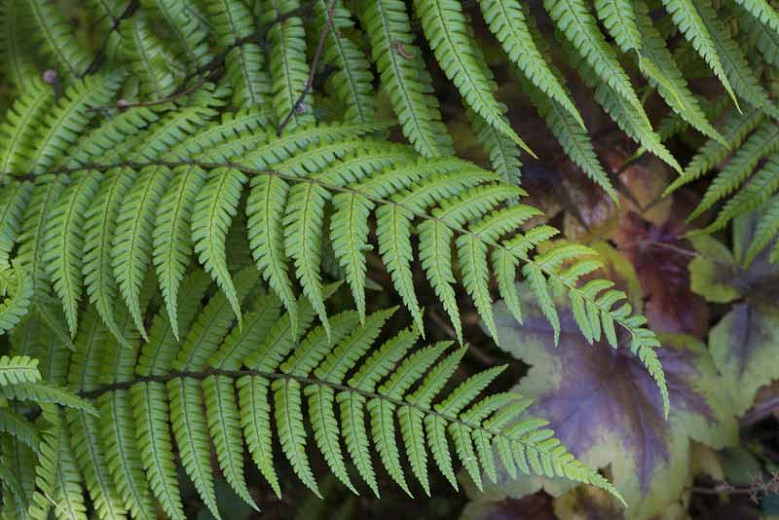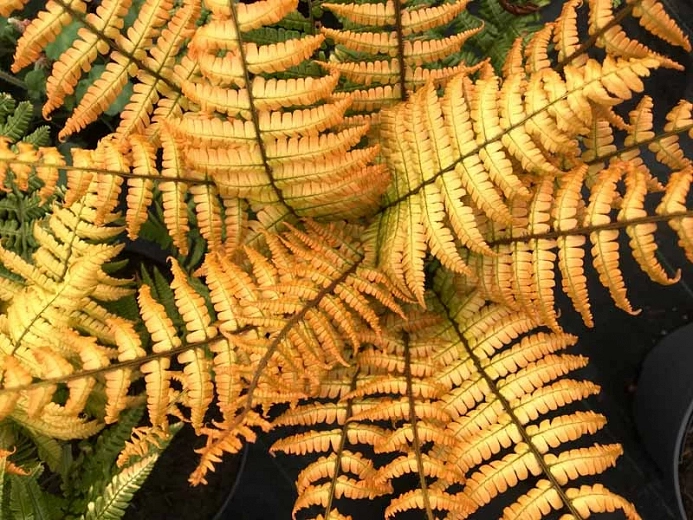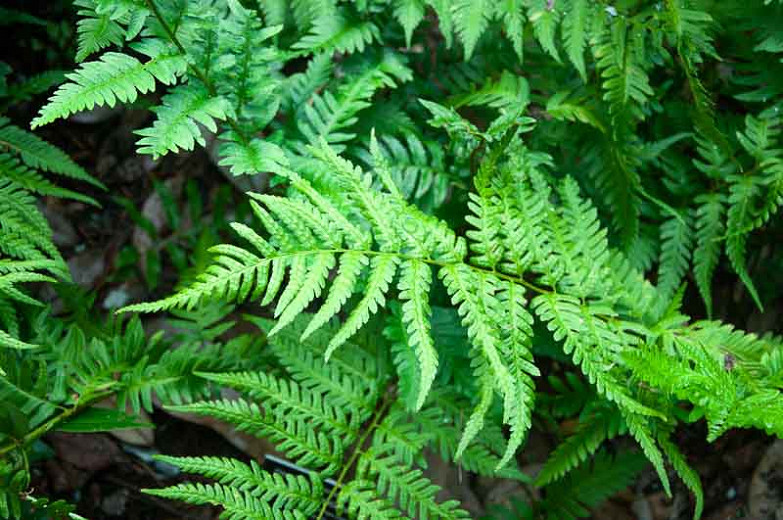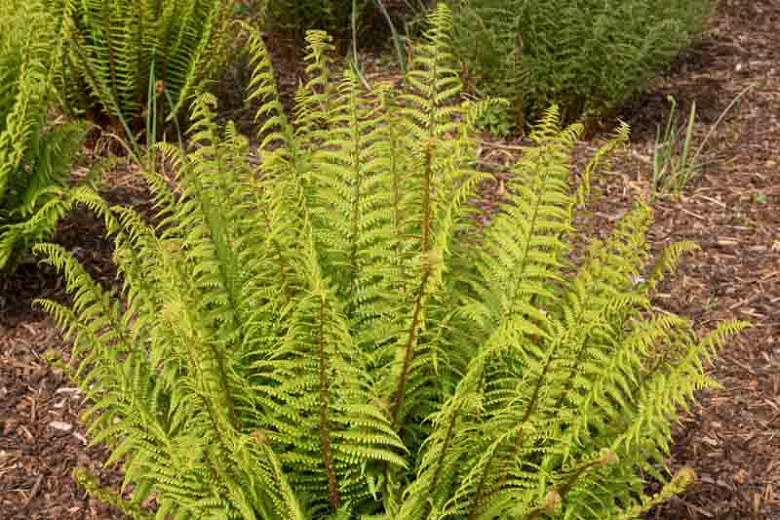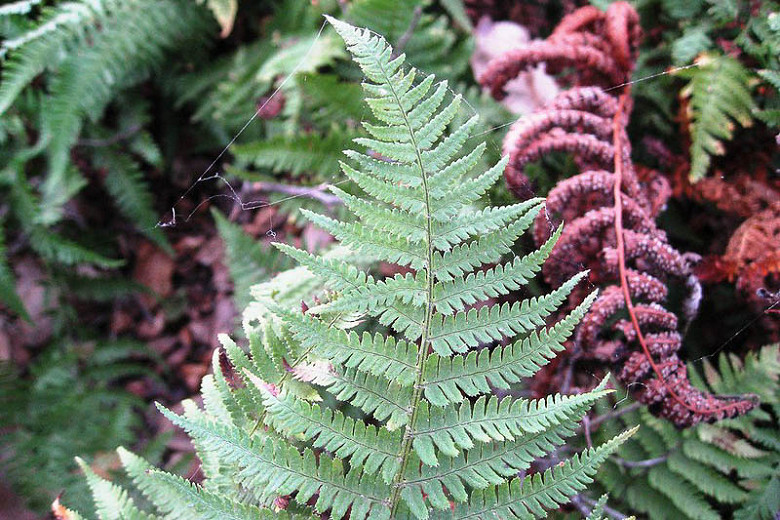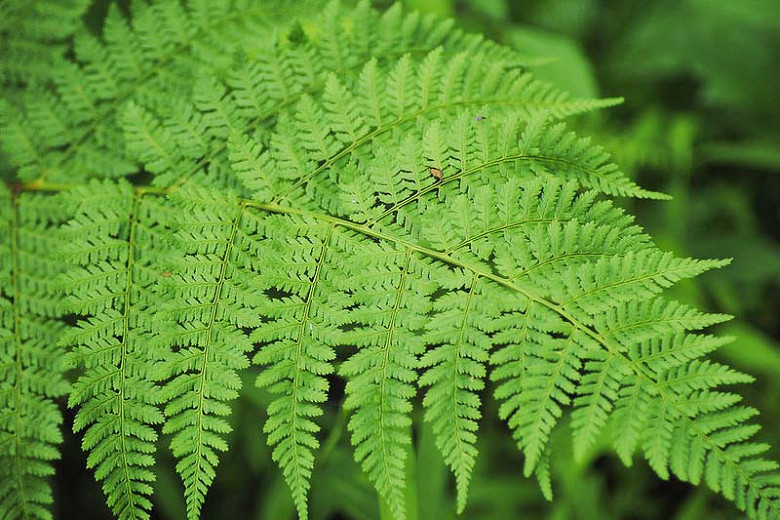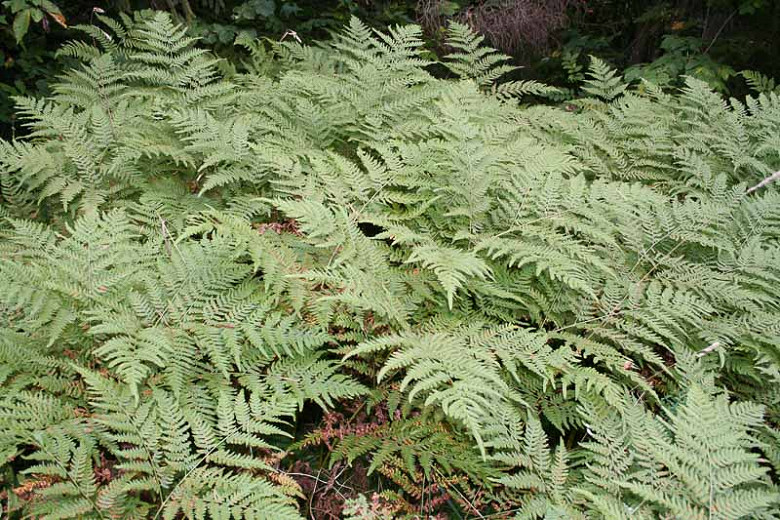Dryopteris goldieana (Giant Wood Fern)
One of the largest and handsomest of the North American species of Dryopteris, Dryopteris goldieana (Giant Wood Fern) is an upright deciduous fern forming a rosette of broadly oval fronds, in variable shades from blue-green to pale pastel green, divided into numerous oblong, indented pinnae.
One of the largest and handsomest of the North American species of Dryopteris, Dryopteris goldieana (Giant Wood Fern) is an upright deciduous fern forming a rosette of broadly oval fronds, in variable shades from blue-green to pale pastel green, divided into numerous oblong, indented pinnae. The fronds tend to taper abruptly at their tips, rather than gradually. They arise from a stout rhizome with an elevated crown. Easily grown and cold hardy, Giant Wood Fern is suitable for cultivation in a wide range of temperatures and excellent for tough moist, shady sites, either as a specimen or in small groups for a vertical accent.
- Grows up to 3-4 ft. tall (90-120 cm) and 4-6 ft. wide (120-180 cm). Will slowly spread over time by creeping rhizomes.
- Performs best in a part shade or full shade in average, humus-rich, neutral to acidic, moist and well-drained soils. This fern requires relatively high humidity levels and protection from strong wind.
- This plant is a great choice for shady beds and borders, cottage gardens or woodland gardens .
- Virtually pest and disease free.
- Remove faded fronds regularly and divide plants when crowded.
- Propagate by sowing spores as soon as ripe or by division in spring
- Native to eastern North America
Requirements
| Hardiness | 3 – 8 |
|---|---|
| Heat Zones | 5 – 8 |
| Plant Type | Ferns |
| Plant Family | Dryopteris – Ferns |
| Exposure | Partial Sun, Shade |
| Season of Interest | Spring (Mid,Late)Summer (Early,Mid,Late)Fall |
| Height | 3' – 4' (90cm – 120cm) |
| Spread | 4' – 6' (120cm – 180cm) |
| Spacing | 48″ – 72″ (120cm – 180cm) |
| Water Needs | Average |
| Maintenance | Low |
| Soil Type | Chalk, Clay, Loam, Sand |
| Soil pH | Acid, Neutral |
| Soil Drainage | Moist but Well-Drained |
| Characteristics | Showy |
| Native Plants | United States, Midwest, Illinois, Indiana, Iowa, Michigan, Minnesota, Missouri, Ohio, Wisconsin, Northeast, Connecticut, Delaware, Maine, Massachusetts, Maryland, New Hampshire, New York, Pennsylvania, Vermont, Southeast, Alabama, Georgia, Kentucky, North Carolina, South Carolina, Tennessee, Virginia, West Virginia |
| Tolerance | Rabbit |
| Garden Uses | Beds and Borders |
| Garden Styles | Informal and Cottage, Prairie and Meadow |
